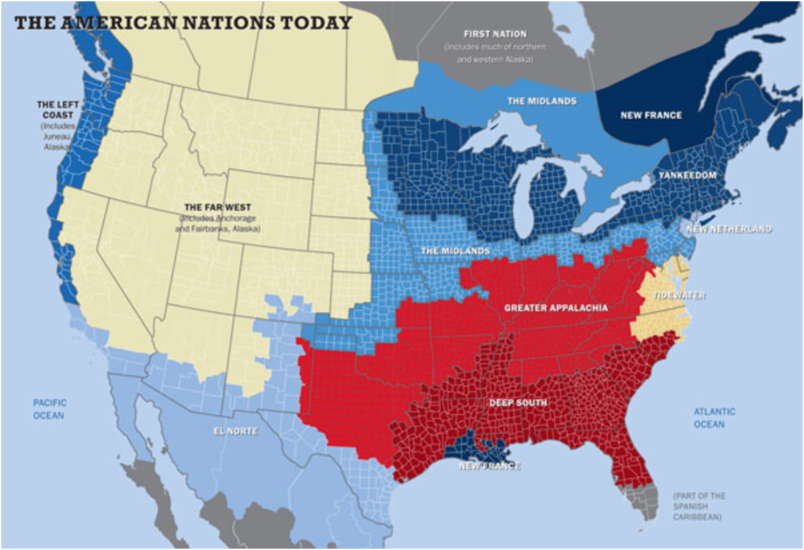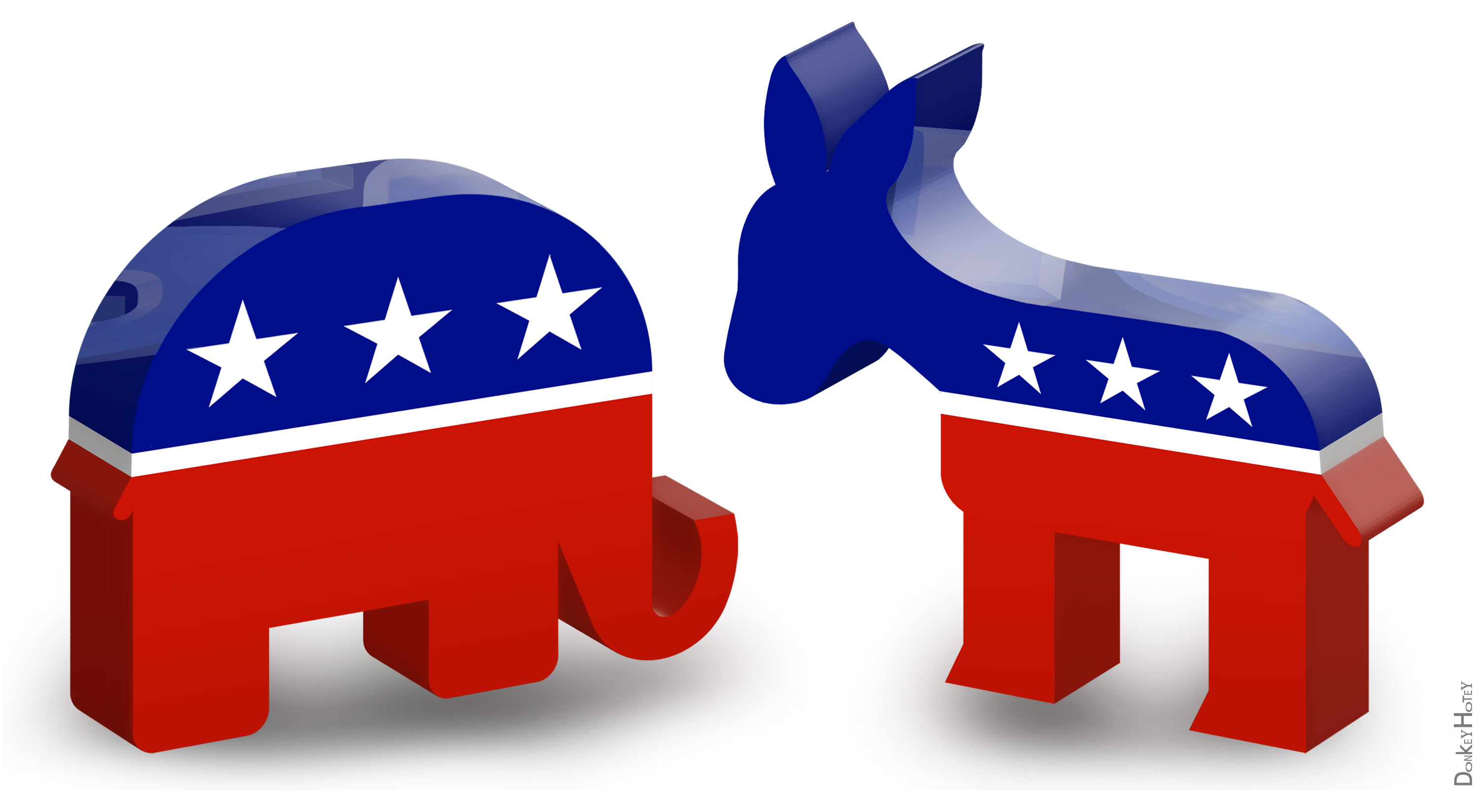The United States was supposedly founded upon the desire for freedom; even in the decades prior to its establishment as an independent country, this land was refuge for the oppressed and under-privileged European citizens. Come to the United States for the freedom of religion, speech, and so much more than you could ever imagine. Although the United States has always shown off its “land of the free” ideology, it has become clear throughout history that these supposed freedoms have served a façade to divert attention from the overwhelming amount of divide within its borders. This division is becoming ever more clear in the wake of climate change; American citizens tend to adopt differing views on the issue and argue over which group is “right” or “wrong” instead of working together to combat this soon-to-be global crisis.
This past semester, I was assigned to read an article titled “Up in Arms” by Colin Woodard for CAS 260: Climate Futures. In this article, Woodard argues that the United States is divided into separate “nations” based on culture, values, and beliefs. Colin Woodard suggests that two American regions, Yankeedom and Greater Appalachia, are constantly in disagreement. Yankeedom “has prized education, intellectual achievement, communal empowerment, and broad citizen participation in politics and government”. In contrast, the Greater Appalachia has “a commitment to personal sovereignty and individual liberty”. The American nations result from the formation of ideological frames. Essentially, a frame is the way how each person understands the world, which is based upon factors such as their background, religious beliefs, cultural values, etc. found within the so-called “United” States, each repelling the other with great magnitude until its citizens do not see the nation as being filled with Americans, but instead containing “us” and “them”.

During this past year, the topic of climate change has served as a primary example of the political rift between these ideological regions within the United States. Liberal-minded people, those who take a progressive stance during most political debates, tend to reside in Yankeedom, while their conservative counterparts are more frequently found in the Greater Appalachian region. Since climate change is viewed primarily as a political topic, our country is currently unable to address the issue without finding a specific group of people to blame. During the 2016 Presidential election, most states in the Yankeedom region had voted blue, against Trump, while many of the Greater Appalachia states had voted red. The election results, paired with Trump’s apparent stance on climate change has created a tense setting in which we see articles and reports that deem Trump supporters and conservative-minded people responsible for any environmental degradation that may occur during his presidency. I have noticed that many articles, shows, and Facebook posts discussing climate change seem to only put the blame on individual, middle-to-lower class citizens instead of simultaneously addressing both the individual citizens (conservative and liberal) and the industrial corporations that exist within the American society. The truth of the matter is this: we have all played some role in the degradation of our environment and we all need to be held accountable.
Some skits produced by Saturday Night Live have depicted the entirety of Trump supporters as being uneducated or racists with no regard towards the health and preservation of our environment. How did we get ourselves into such a situation, where an entire group of people can be represented incorrectly without a large pushback from the American society? When large groups of people are stripped of their integrity, it becomes easier for media sources to make a mockery of their true values while making it difficult for the audience to differentiate reality from the distorted narrative formed for the sake of comedic television and, ultimately, economic gain. The fact of the matter is this: divisions within a society can promote economic development. If screenwriters did not have a group of people to target in a quick, ten-minute skit, it would be much more difficult for comedy shows such as Saturday Night Live to exist. If a society cannot agree on the fact that climate change is mostly human-caused, the government has less incentive to regulate fossil fuel companies and to hold them accountable for the United States’ energy and climate crisis. Our government’s supposed inability to address, let alone stop, such separating factors from our society must be questioned.
I am an American citizen. I live in Woodard’s suggested “Yankeedom Nation”. I am neither anti-American nor anti-*insert political party here*. I care about my country and all of the people who inhabit it. Along with many others, I wish to see a world where everyone from each country and ethnicity can live and prosper, but no one will thrive in a world destroyed by climate change. I will admit that I can get frustrated with those who deny climate change, but I also become upset when these people are attacked. If someone does not agree with you, questioning your opponent’s intelligence will only make them more angry and less likely to see your point of view.
Whether you are the president or a pupil, sitting behind a screen and flinging insults through the internet does not promote progress. It promotes hatred. We need to find solutions that put members from either side of the debate in the shoes of their ideological opponents, thus humanizing all of those involved and creating an opportunity for open discussion. If you take the time to understand why people disagree with you, it will allow you to have a better understanding both their stance and your own. So, to everyone out there, please try to be more receptive to differing viewpoints around climate change. Attacking each other will get us nowhere.
Written by Michaela Burrell, Class of 2020
Featured image source: flickr.com

